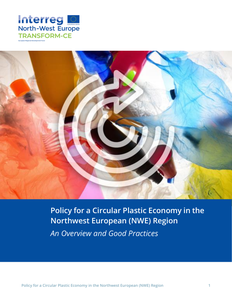This document combines four reports on existing regional business support programmes for inclusion or understanding of circular economy (CE) objectives, deliverable DT3.1.2 from the transform-CE project. Besides a general overview on national and regional level, the focus is on a selection of national and regional programmes aimed at the plastics industry. After explaining the format to structure the programmes, the results for the four regions are presented: Greater Manchester (UK), Rhineland Palatinate and North-Rhine Westphalia (DE), Wallonia (BE), Central Netherlands (NL).
MULTIFILE
